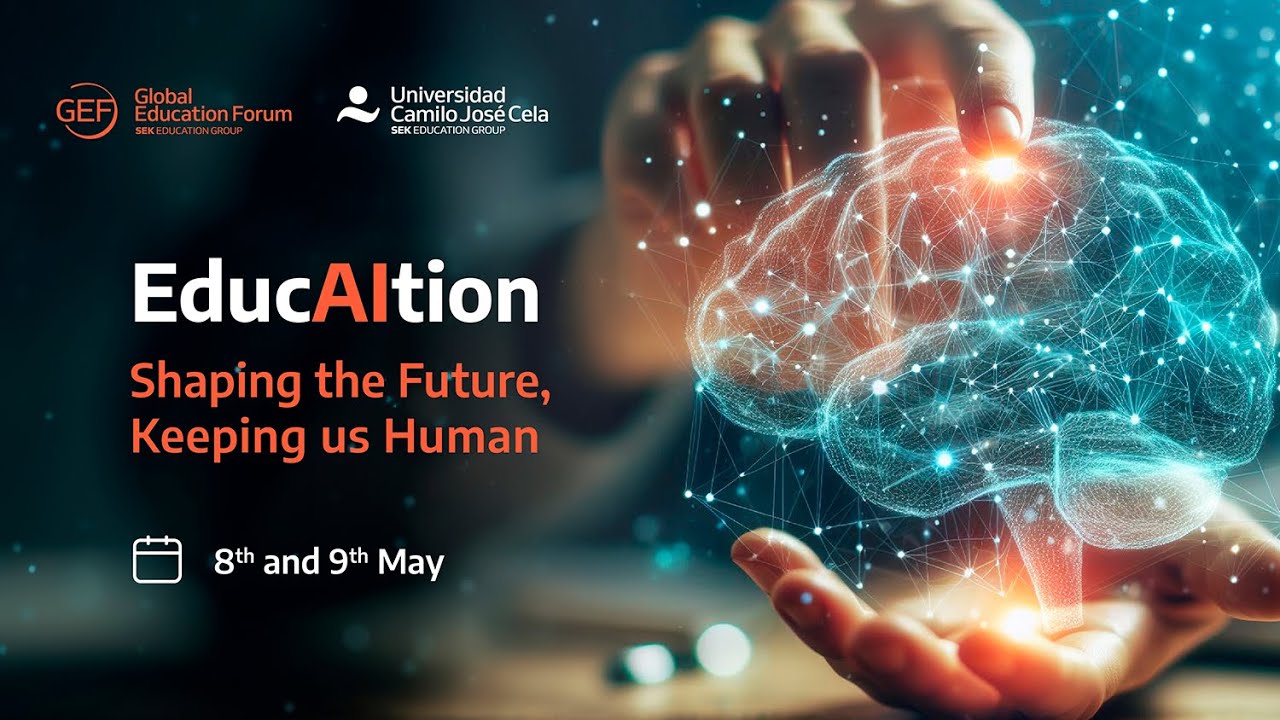How AI Can Change Education For The Better | Minh Minh Le Nguyen | TEDxYouth@PennSchool
Summary
TLDRMin discusses the transformative potential of AI in education, addressing the outdated nature of traditional teaching methods and the need for personalized learning. AI can cater to various learning styles, assist students with disabilities, and automate tasks like grading to reduce teacher workload. It can also serve as a non-judgmental tutor, fostering a learning environment where students feel comfortable asking questions. However, Min emphasizes that while AI is a powerful tool, it cannot replace the emotional connection and personal touch that human teachers provide.
Takeaways
- 🧠 AI, as defined by Oxford University Press, involves computer systems capable of tasks typically requiring human intelligence, such as visual perception and decision-making.
- 🏫 Traditional education systems are often outdated and struggle to cater to individual learning paces, which can hinder personalized education.
- 👨🏫 Teachers face challenges in managing large classes and providing individual attention, which AI could help address.
- 🚫 Banning AI in education is not a solution, as it has the potential to enhance learning experiences when used wisely.
- 🔢 Historically, the calculator was initially met with resistance but was later integrated into education to support, not replace, mathematical skills.
- 🎓 Personalized learning can be enhanced by AI, which can adapt to different learning styles and paces, ensuring a more inclusive educational experience.
- 👥 AI can assist students with disabilities by providing customized support, such as captioning and audio descriptions, to make education more accessible.
- 🤖 AI can act as a tutor, offering students a non-judgmental platform to ask questions and learn at their own pace, without disrupting class.
- 📚 Automating tasks like grading with AI can reduce teachers' workload, allowing them to focus on lesson planning and other valuable activities.
- 📊 AI can manage classroom processes by tracking and recording student performance, behavior, and grades, facilitating better communication between educators and parents.
- 👩🏫 Despite AI's capabilities, it cannot replace the emotional connection and personal touch that human teachers bring to the classroom.
Q & A
What is the definition of AI according to Oxford University Press?
-AI is the theory and development of computer systems able to perform tasks that normally require human intelligence such as visual perception, speech recognition, decision-making, and translation between languages.
How can AI change education?
-AI can change education by offering personalized learning, assisting students with disabilities, providing a co-teacher role, increasing efficiency through automation, and managing classroom processes.
Why is traditional education considered outdated?
-Traditional education is considered outdated because it does not cater to different learning paces and styles, and it is challenging for teachers to provide individual attention and support outside of teaching hours.
What are the challenges faced by teachers in traditional education settings?
-Teachers face challenges such as grading, planning lessons for each class, and managing the attention of multiple students, which can be time-consuming and energy-intensive.
Why did the top school district in the US ban the use of chatbots?
-The top school district in the US banned the use of chatbots due to fears that AI might undermine critical thinking skills and the belief that it could be misused by students.
How is AI similar to the introduction of calculators in education?
-AI is similar to calculators in that both are tools that can assist with learning and tasks, and there was initial resistance to their use due to concerns about the impact on fundamental skills, but they were eventually integrated into education.
How can AI provide personalized learning experiences?
-AI can analyze data on students' performance, interests, and goals to determine the best methods for them to absorb information, catering to different learning styles such as auditory, visual, or hands-on learners.
In what ways can AI assist students with disabilities?
-AI can assist students with disabilities by providing captioning, audio description, and other accommodations, making learning opportunities more accessible and tailored to their needs.
How can AI serve as a co-teacher for students?
-AI can serve as a co-teacher by answering questions, providing information, and guiding students without judgment, allowing for a more personalized and non-disruptive learning experience.
What tasks can AI automate to increase efficiency in education?
-AI can automate tasks such as grading, which can reduce the workload for teachers and provide students with feedback more quickly, allowing for faster identification and addressing of knowledge gaps.
How can AI help manage classroom processes?
-AI can manage classroom processes by tracking and recording student grades, performance, and behavior, and can provide updates to educators and parents, facilitating better communication and support.
Why is it important not to replace teachers with AI?
-It is important not to replace teachers with AI because teachers bring emotion, personal connection, and the ability to make learning exciting and fun, which are essential aspects of education that AI cannot replicate.
Outlines

Cette section est réservée aux utilisateurs payants. Améliorez votre compte pour accéder à cette section.
Améliorer maintenantMindmap

Cette section est réservée aux utilisateurs payants. Améliorez votre compte pour accéder à cette section.
Améliorer maintenantKeywords

Cette section est réservée aux utilisateurs payants. Améliorez votre compte pour accéder à cette section.
Améliorer maintenantHighlights

Cette section est réservée aux utilisateurs payants. Améliorez votre compte pour accéder à cette section.
Améliorer maintenantTranscripts

Cette section est réservée aux utilisateurs payants. Améliorez votre compte pour accéder à cette section.
Améliorer maintenantVoir Plus de Vidéos Connexes

The AI Education Revolution is Coming – or is it? | Dr. Philippa Hardman | TEDxSantaBarbaraSalon

AI || ARTIFICIAL INTELIGENCE DALAM PENDIDIKAN

The Role of Technology (Speaking Session Group 3 / E Class / Advance Speaking)

Summit Dan Levy Senior Lecturer Harvard University GEF Madrid 2024

SO sollten wir KI in der SCHULE nutzen! #Bildung #KünstlicheIntelligenz

GEF Madrid 2024: AI and Personalised Learning
5.0 / 5 (0 votes)
